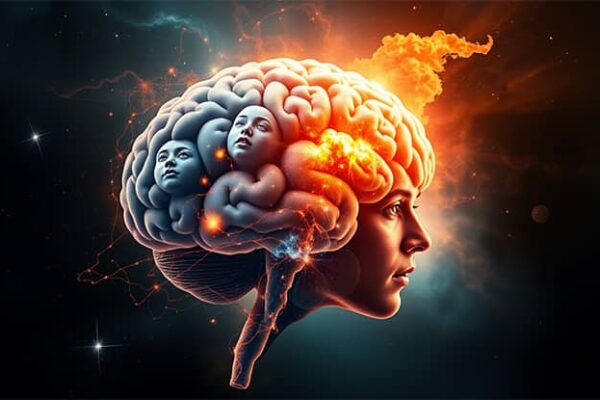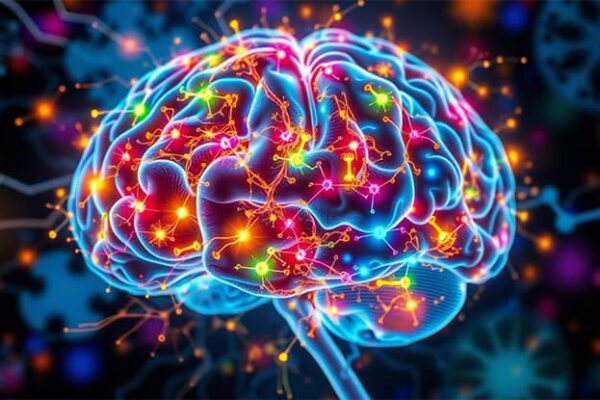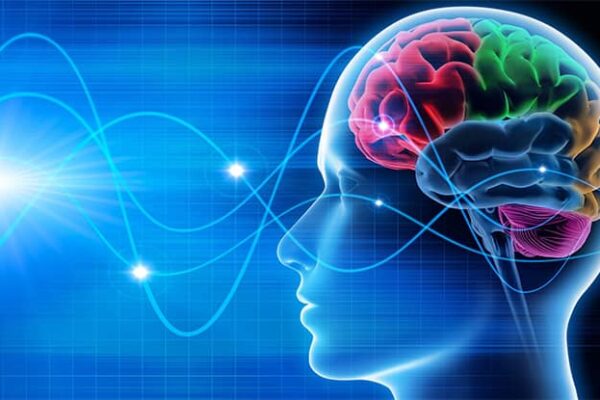The Zeigarnik effect is not just an intriguing psychological phenomenon, but a powerful mechanism that daily influences our attention, motivation, and even emotional state. As research by Bluma Zeigarnik and subsequent work in cognitive psychology has shown, our brains are wired in such a way that unfinished tasks create a unique tension, compelling us to […]
Lateral Thinking – The Art of Seeing What’s Hidden from Others
Imagine that all people are walking along the same path—logical, predictable, trodden by thousands of feet. Now imagine someone who turns aside, pushes through the thickets, and discovers not just a new path but an entirely unexplored world. This is the essence of lateral thinking—the ability to step beyond familiar patterns, see what is hidden […]
Psychasthenia: The Disease of Perfectionists and Anxious Geniuses
Psychasthenia is a specific neurotic disorder in which a person becomes trapped in their own thinking: they are plagued by obsessive doubts, chronic anxiety, and exhausting perfectionism. Unlike ordinary anxiety, which comes and goes, psychasthenia creates a constant background of inner tension, where every decision is made with difficulty, and every mistake is experienced as […]
the Six Thinking Hats method: How Edward de Bono Taught the World to Think Differently
Imagine the following situation: there’s a heated debate in your team about a new project. Some are shouting, “It’s too risky!” Others passionately argue, “But it’s profitable!” Skeptics demand hard numbers, while some just have a gut feeling that “something’s off.” The result? Chaos, conflicts, and zero progress. It’s precisely for such scenarios that Edward […]
Evolutionary Psychology: From Darwin to Modern Research
Evolutionary psychology represents a unique direction of scientific thought that attempts to explain the structure of the human psyche through the lens of evolutionary processes. In the broadest sense, it is the science of how natural selection shaped our thoughts, emotions, and behavioral strategies over hundreds of thousands of years. Its key task is to […]
Creative Block: What to Do When It Seems You’ve Run Out of Ideas
Creative Block — a state familiar to anyone who has ever tried to create something new. It comes suddenly: yesterday, you effortlessly found solutions, generated ideas, and felt inspired, but today, you stare at a blank sheet or screen with a sense of utter emptiness. Thoughts seem frozen, every attempt to come up with something sparks […]
Analytical Thinking: How to Boost Your Brain in 30 Days
In a world where we are bombarded with streams of information daily and decisions need to be made quickly and accurately, analytical thinking becomes not just a useful skill—it is a key competitive advantage. It allows us not just to memorize facts but to understand interconnections, spot hidden patterns, and make well-considered decisions even in […]
Hyperbolic Discounting: Why We Choose a Bird in the Hand Over Two in the Bush
We’ve all faced a choice at least once in our lives: to get something small but right now or to wait and ultimately receive much more. There’s even a metaphor for this — “a bird in the hand is worth two in the bush”. It might seem more logical to aim for greater rewards, but […]
Neuroplasticity: The Brain’s Magical Ability to Change
Imagine that your brain is not a frozen, unchanging organ, but a living, dynamic system capable of restructuring, adapting, and developing throughout your life. This amazing property is called neuroplasticity – the brain’s ability to change its structure and function in response to experience, learning, and even injury.
The Feynman Technique and Other Ways to Learn Without Cramming
Imagine you need to learn a complex topic for an exam. The first thing that comes to mind is to start cramming: repeating the material over and over until it’s “imprinted” in your memory. But after just a couple of days, you realize with horror that you’ve forgotten almost everything. What’s the problem? Traditional cramming […]
Psychogenic Aphonia as a Defense Mechanism: Why the Psyche Blocks Speech
The human voice is not just a tool for communication but a reflection of one’s inner world, emotions, and even unconscious processes. But what happens when this voice suddenly disappears? In medicine, this condition is known as aphonia — the loss of a sonorous voice while retaining the ability to speak in a whisper. In most […]
Identity Crisis: How to Find Yourself in a World of Constant Change
We live in an era where the concept of “self” is becoming increasingly elusive. An identity crisis is not just a trendy psychological term but a real state of disorientation—when a person no longer understands who they truly are, what they want, or where they’re headed. The inner compass is broken: old reference points—career, family, […]
Logotherapy: What is it and How does it Help with Depression and Anxiety
In the modern world, where a fast-paced lifestyle and constant change have become the norm, many people experience feelings of inner emptiness, anxiety, and depression. In search of a way out of this state, logotherapy – a psychotherapeutic approach developed by the Austrian psychiatrist and philosopher Viktor Frankl – has been attracting increasing attention.
Procrastination Is Not Laziness! The Real Reasons for Inaction
We’ve all put off important tasks at least once, finding a thousand reasons to do anything except what really needs to be done. “Now’s not the right time,” “I’ll do it tomorrow,” “I need to prepare first”—these familiar excuses hide something far more complex than mere laziness: procrastination. Unlike laziness, where a person simply doesn’t […]
Neurofeedback: An Innovative Way to Increase Concentration and Productivity
Neurofeedback is an innovative method based on the principle of brain feedback, which allows a person to learn to control their brain activity. The essence of the technology lies in the fact that, with the help of specialized equipment, such as electroencephalography (EEG), the brain receives real-time information about its functioning. It is like a […]




















